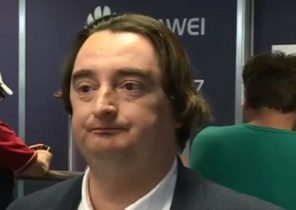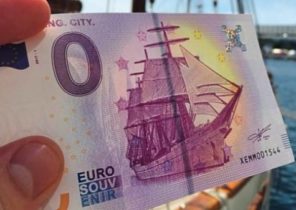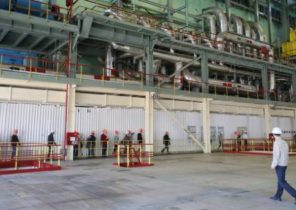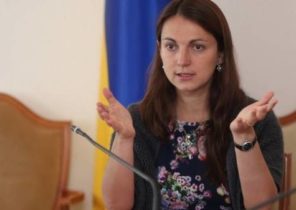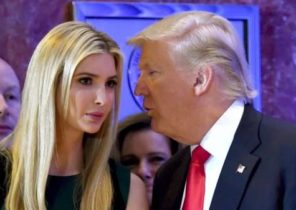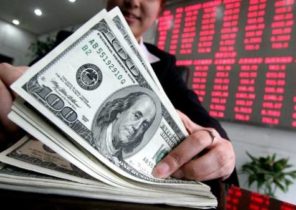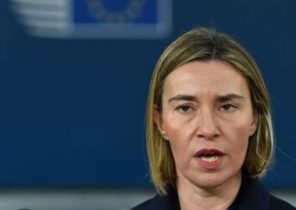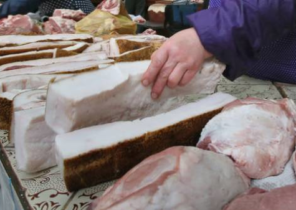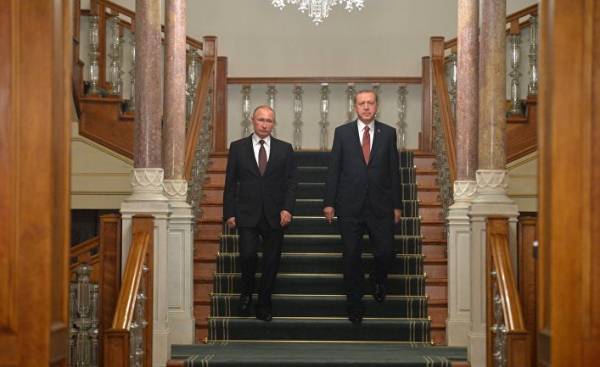
Independent observers note that the Turkish referendum was neither free nor honest, but their objections have no meaning. President Recep Tayyip erdoğan announced his victory and the end of the debate. No recount or cancellation of the vote, he will not agree.
As a symbol of their rejection of the secular and Pro-Western policy of the Republic, founded almost 100 years ago by Mustafa Kemal Ataturk, was the fact that Erdogan after his election, has not visited his tomb, and the tomb of Ottoman Sultan Mehmed II, who in 1453 captured Constantinople (now Istanbul). This visit was the result of the fact that Erdogan more than 10 years adhered to the ideology of neo-Ottomanism pursued by former Minister of foreign Affairs Ahmet Davutoglu (Ahmet Davutoglu). According to this ideology, Turkey’s foreign policy should focus on the former possessions of the Ottomans in the middle East and North Africa, paying less attention to Europe and the West in General.
Reorientation in the direction of neo-Ottomanism is only the beginning of the alienation of Turkey from the West. It seems that Turkey has not only decided to break with the European Union, which once tried to join (Erdogan in recent weeks compared the governments of the Netherlands and Germany with the Nazis). She also wants to establish full ties with Russia.
NATO denies everything. “We are grateful to Turkey for its longstanding and multifaceted contribution to our Alliance,” said last year NATO Secretary General Jens Stoltenberg after a visit to Istanbul and Ankara. He praised the contribution of that country to the international fight against terrorism, despite the fact that Erdogan had transformed Turkey into an underground transit hub, through which moved the militants of the “Islamic state”, as well as providing assistance and support to the branches of “al-Qaeda” (banned in Russia organization — approx. lane) in Syria and other places.
At first glance it may seem that Russian-Turkish Alliance is unnatural, because Russia and Turkey have been enemies for almost the entire history. Russia has repeatedly fought with the Ottoman Empire and for a long time tried to take control of the Bosphorus. During the cold war Turkey was one of two States-NATO members that bordered the Soviet Union.
In recent years Ankara and Moscow are frequently at odds over Syria. Russia has given increasing support to Syrian President Bashar al-Assad, while Turkey supports the armed opposition. The tension reached its peak when Turkish F-16 fighter shot down a Russian su-24M, accidentally flew into Turkish airspace. Supported by the Turks, the Syrian rebels killed a catapult pilot. The Russian government in response banned their travel companies to work with Turkey, dealing a powerful blow to its tourism industry, which was in a difficult situation.
But in recent months, Erdogan and Russian President Vladimir Putin reconciled (despite the murder of the Russian Ambassador in Turkey). The tourists are coming back. The two leaders met to bury the hatchet — first in St. Petersburg and then in Istanbul. They discussed cooperation on billions of dollars in the sphere of energy, infrastructure and nuclear energy. Very often, when it comes to specific matters of business, professional diplomats left the hall of negotiations, the two leaders, which are financial giants in their countries, Ironing out details of the transactions that are equally related to the reconciliation of Bank accounts and reconcile national interests. This reconciliation did not prevent even the murder of the Russian Ambassador to Turkey, who was shot by a COP, who gave an oath of allegiance to the branch of “al-Qaeda”.
Putin is diplomacy not as a work to find win-win solutions, but rather as a game where there can only be one winner. The partnership with Turkey is connected not only with diplomacy. It’s probably an attempt to alienate Ankara and the West. And here the role played by Erdogan, who hates the West for its support of the old secular order in Turkey. While Turkish and Western diplomats and military leaders talking about the importance of cooperation, Erdogan has persistently generates the Turks a hatred of the West in General and NATO in particular. Turkish state media sent reporters to Germany to those standing in front of us military bases, a terrible voice was saying that NATO is a sponsor of terror. Russian political scientist and conspiracy theorist, Alexander Dugin speaks the Turkish press more often than the American Ambassador.
The convergence of Turkish and Russian military is not only symbolic. How to speak and write Turkish diplomats and Western reporters, purges in the officer corps of Turkey is directed against the followers of the exiled preacher Fethullah Gulen. However, this grinder is most likely to be those officers who have long served in NATO. Today in the Ministry leadership of the Alliance they think is a ticket to jail, not increase. This month, Turkey and Russia held joint naval exercises. In Turkey there are rumors that the Kremlin wants to create a naval base in Mersin, where a significantly enhanced Russian presence.
The rapprochement in the diplomatic sphere also manifests itself quite clearly. Although Turkish organizations in the formation of public opinion very loudly talking about the devotion of Turkey Europe, Erdogan with his MFA provides the basis for entry into the Shanghai cooperation organization, which dominated Moscow and Beijing. In the final weeks of the Obama administration, Turkey made a surprise Secretary of state John Kerry, while supporting the diplomatic initiative of Russia and Iran on Syria.
Paradoxically, but today, when Erdogan will consolidate his power and takes the Turkey from the West in the direction of a larger partnership with Russia, the problem for the United States is not that Turkey may withdraw from NATO, and that it will remain there. Decisions in NATO are taken by consensus, and Turkey can become a sort of Trojan horse, paralyzing the decision-making process and reducing the efficiency of the Alliance. NATO has no mechanism to exclude from its ranks a member who departs from their political and democratic norms.
But the danger lies in the other. Turkey is a partner in the program to create a unified strike fighter F-35 and wants to purchase these new generation aircraft. Sale and supply of these aircraft Turkey carries a great risk, because Ankara can transfer the most modern military technology and codes of Russia and China. The idea that Turkey necessarily need the F-35 is in serious doubt. Erdogan is so radically cleaned up their air force that is now in Turkey on a pilot have two F-16 (this is not counting those behind bars). Buy Turkey Russian s-400 is not less dangerous, because they can be integrated into the Turkish air defense system, only issuing NATO codes and procedures.
What is the essence of the game Erdogan? Perhaps he believes that pursuing a win-win strategy. If he gets leverage over the US and Europe is fearful, it will be able to knock them out of the concessions and win. But from the President of Donald trump and Minister of defense James Mattis would be foolish to engage in this bargaining, because Erdogan will never be satisfied. On the other hand, if the Turkish leader would get Putin some kind of reward, personal or for the country, it will count that also won. Erdogan simply does not understand what a risky game for the future of Turkey, he leads. If the United States sees allies partner, Russia considers them to be dependent States. And although Erdogan may believe that he will be able to beat Putin, he’s just a beginner compared to the Russian leader, educated and trained by the KGB.
The West can moan and wail about the death of democracy and the secular order in Turkey, but that train left the station ten years ago. Much more dangerous for Europe and the U.S. the changes that occur in the orientation of Turkish foreign policy.
Michael Rubin, fellow at the American enterprise Institute (American Enterprise Institute).
